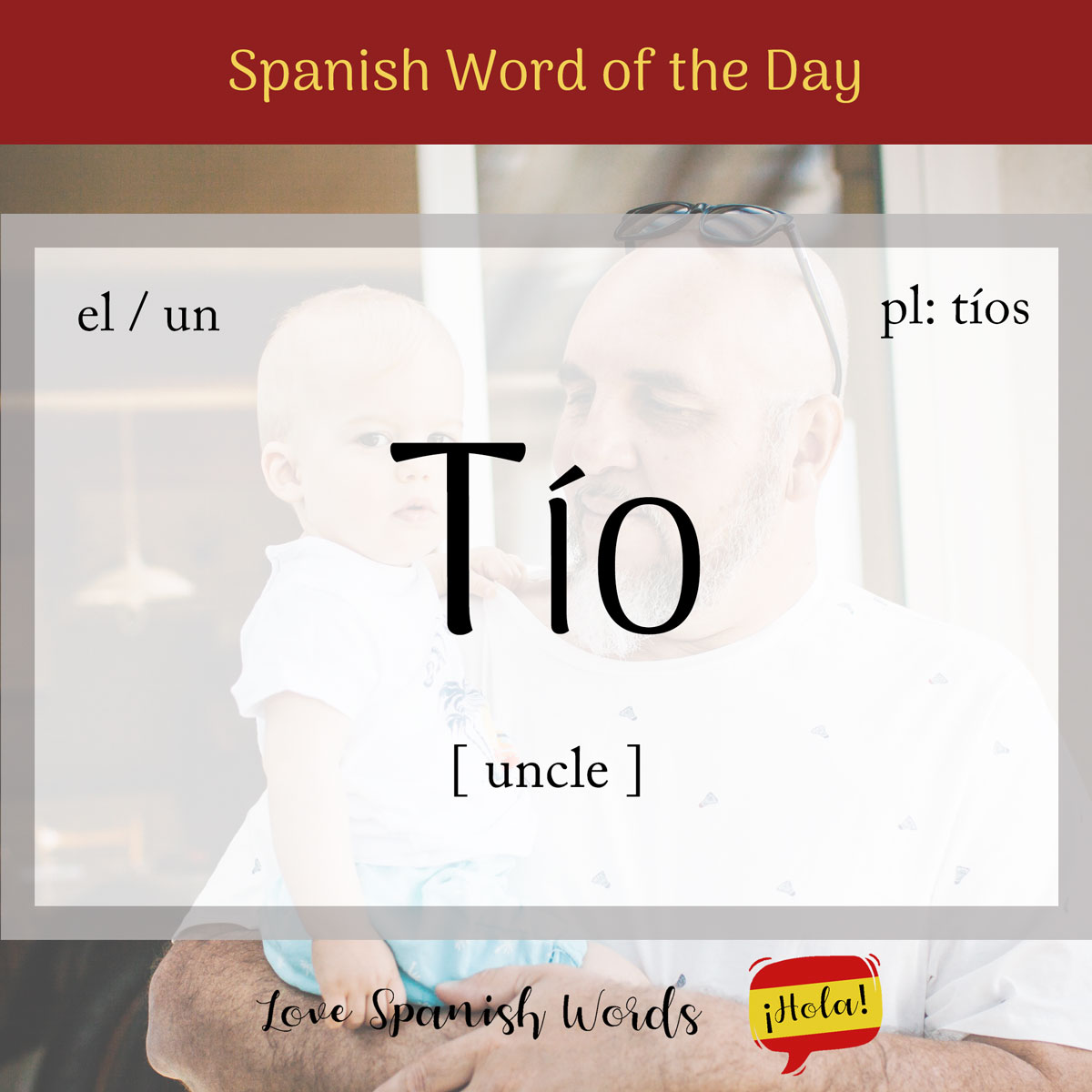Let’s look today at another important member of the family. The brother of your mother or father, your uncle, is known as tío in Spanish. It was inherited from Old Galician-Portuguese tio, originating from Late Latin thīus, from Ancient Greek θεῖος (theîos).
Latin American Pronunciation
European Pronunciation

Tío is a masculine noun, and of course, its feminine counterpart is tía (aunt). It takes the following definite and indefinite articles:
- El tío = the uncle
- Los tíos = the uncles
- Un tío = an uncle
- Unos tíos = some uncles
El hermano de mi padre es mi tío.
My father’s brother is my uncle.

Within the family you can have your blood relation tío/a carnal, which would be the immediate brother or sister of your parent. Tío/a abuelo/a would be the brother or sister of your grandparent. Tío/a político/a is used to refer to the husband or wife of your uncle or aunt. Tío/a is also sometimes used in place of padrastra/madrastra (stepfather/mother).
Tío/a can become tito/a when talking about one’s uncle or aunt with familiarity and affection.
Tío/a is also used colloquially to mean a man or a woman and in informal speech to mean a bloke/dude/pal/mate.
¿Quién es ese tío?
Who’s that guy?

If you think that somebody is particularly good looking, a hunk or a stunner, you would use tío/a bueno/a. And a great guy would be un tío grande or un tío con toda la barba (literally “a guy with a whole beard”).
El tío del saco is the bogeyman, a folk character who carries naughty children away in his bag.
Useful idiomatic expressions featuring tío
¡No hay tu tía!
Literal translation: There’s no aunt of yours!
English meaning: No chance!

Fun fact: The above idiom would have originally been ¡no hay tutía! but has almost never been used correctly.
Tutía or atutía was the name for a curative salve and therefore the original phrase would have meant ‘there’s no cure or remedy for that‘. The word came into disuse in the 17th century
¡Cuéntaselo a tu tía!
Literal translation: Go tell it to your aunt!
English meaning: Pull the other one! or Rubbish!

